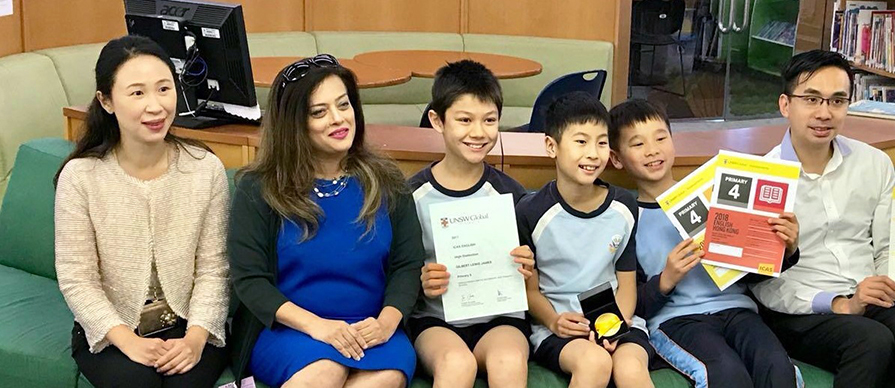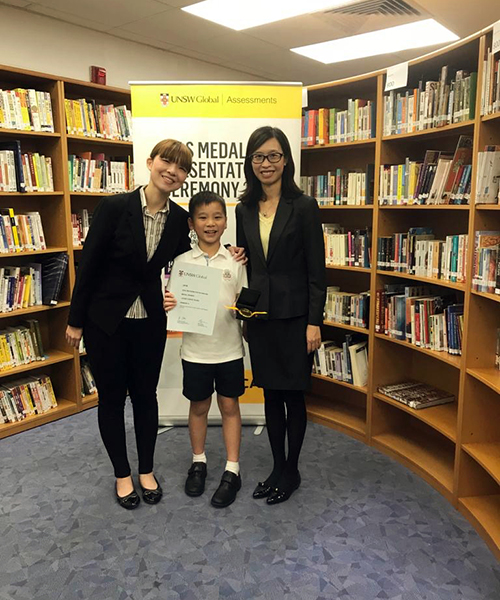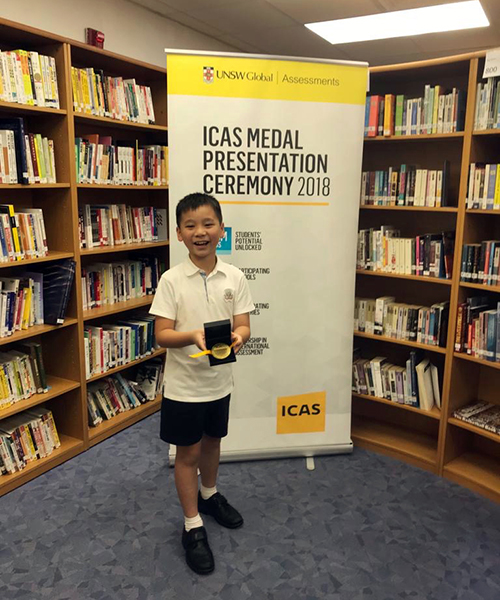Mathematics
Curriculum Objectives
Our Mathematics curriculum aims to develop students’ interest, understanding and acquisition of mathematical concepts and computational skills. Students learn mathematics in an engaging environment where they actively explore and experiment through discussions when they work on mathematical activities. Through real-life and hands-on experience, observation and discussion, our Mathematics programme facilitates student learning in mathematical concepts and problem-solving skills in a stimulating environment. Students are guided to:
- Develop logical thinking and reasoning skills
- Acquire mathematical concepts through hands-on activities
- Learn to ask insightful questions and share the process of solving problems
- Apply creative thinking and communication skills
Curriculum Framework
Our Mathematics programme is a spiral curriculum in which topics and materials are revisited repeatedly over months and across grades. The Mathematics topics are across five dimensions: Number, Shape and Space, Measures, Data Handling and Algebra.
Key Stage 1
In key stage 1, our junior students learn about number, shapes and different operations in order to comprehend and interpret daily phenomenon. Through observation, concrete hands-on experience, discussion and daily practice, our young learners are able to develop number sense and spatial sense as well as apply the knowledge and skills they have learnt.

Key Stage 2
In key stage 2, senior students learn to operate with fractions, decimals and percentage. They can create and draw 2-D and 3-D shapes. They find the perimeters and area of shapes by applying formula. They measure the volume, capacity and speed of objects. They learn to plot complicated charts and diagrams to interpret and explain a phenomenon. They also work with symbols and algebras to investigate relationship between numbers and operations.
Assessment
Assessment is a routine part of the on-going classroom activity. Our students are assessed formatively and summatively. Module tests are carried out at the end of each module to review and reflect student’s learning. Mid-term and term-end assessments are carried out at the middle and end of each term.
Subject Highlights
Math Week
Our students enjoy solving and creating Math puzzles and games inside and outside classrooms. Every year, senior students create their Math puzzles, riddles and games for their classmates to solve. Through the creation process, students apply knowledge and skills to build, adapt, categorize, explain and interpret Math concepts.
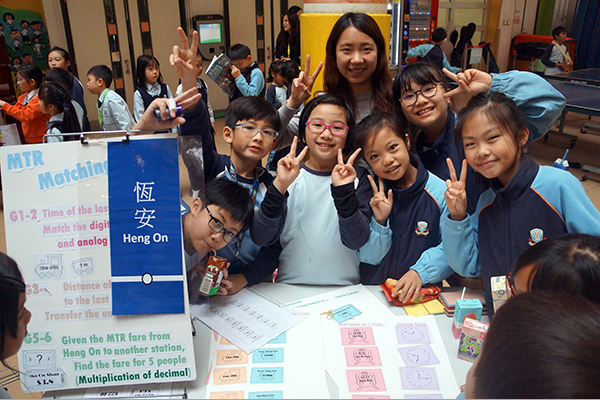
Manipulatives for Learning
Manipulatives are widely used in our Math lessons because we believe our children are intuitive learners and through hands-on activities, young children develop cognitively their own number sense and spatial sense.
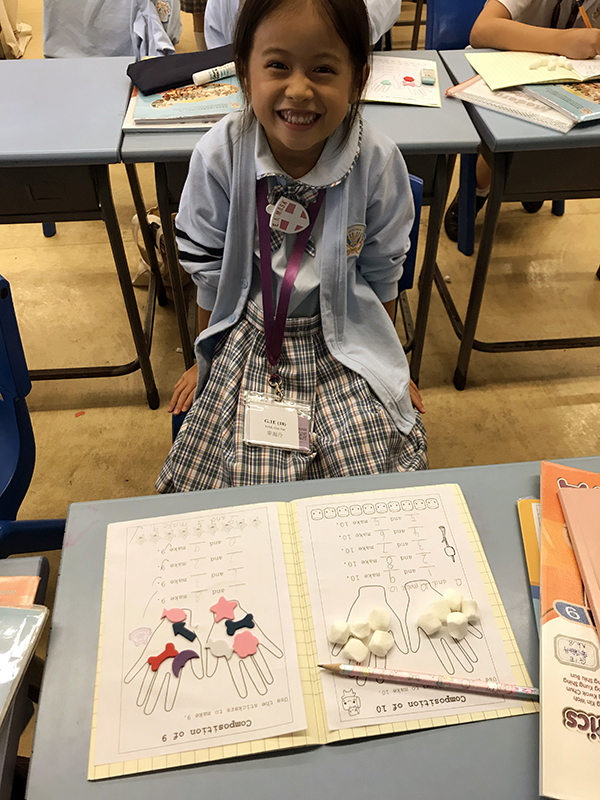
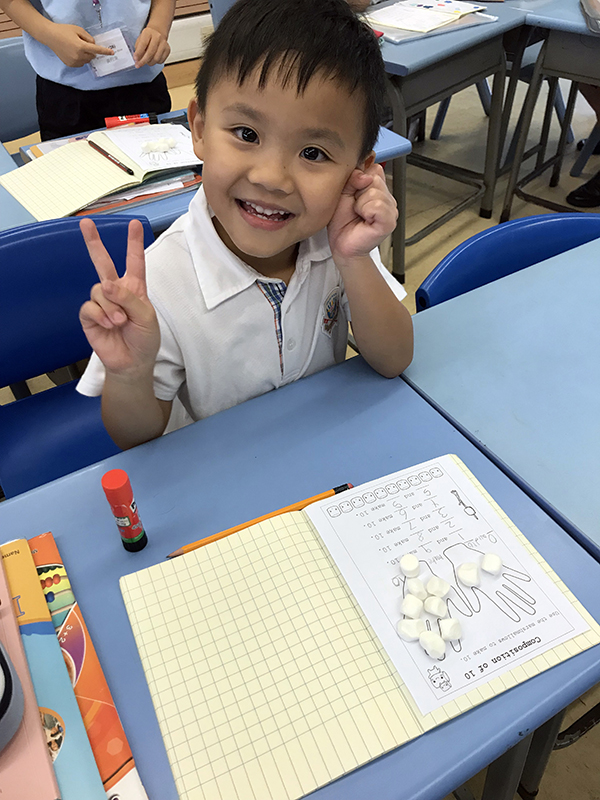
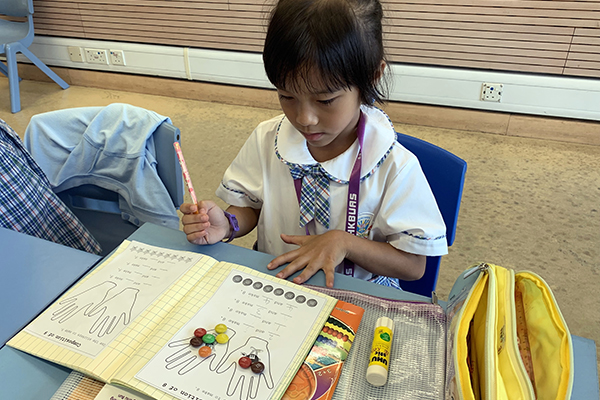
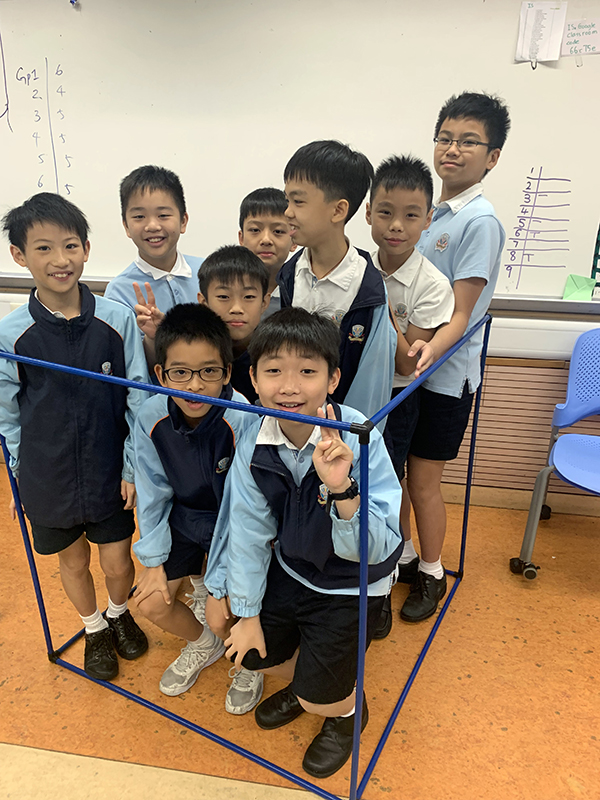
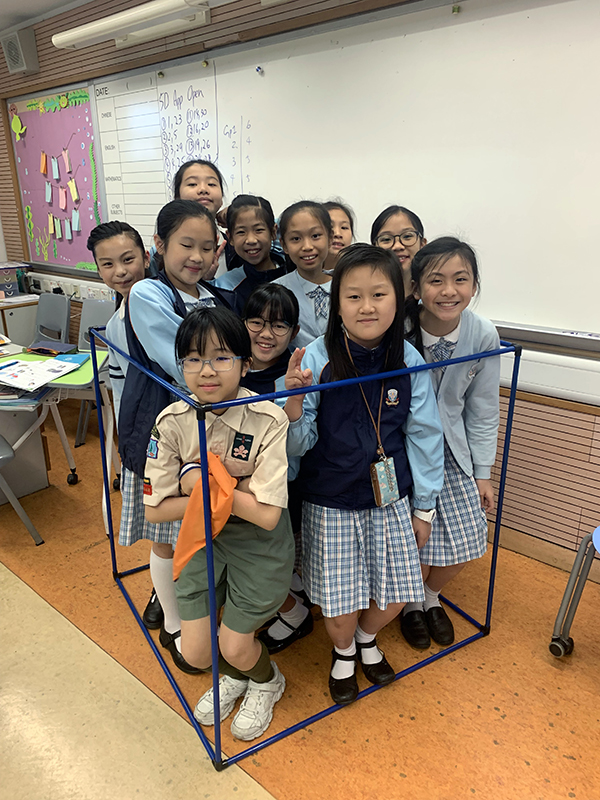
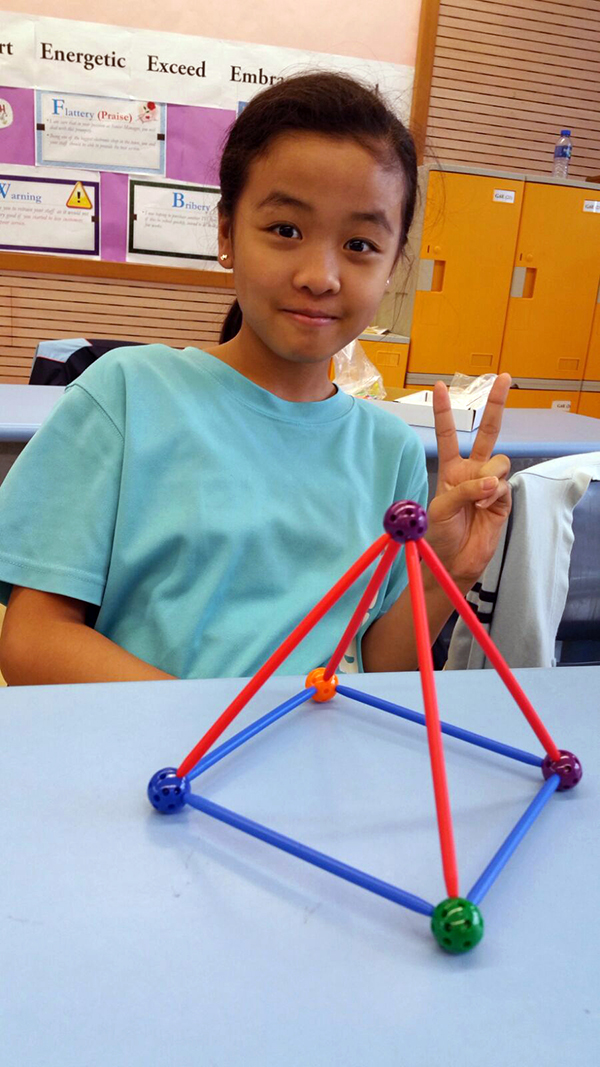
Made pyramid models and observed the features.
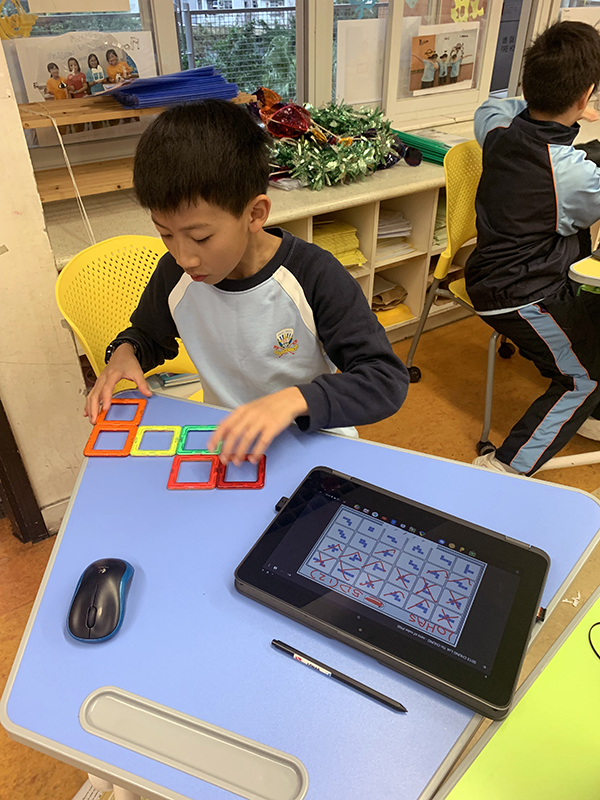
Investigated the different nets of cube.
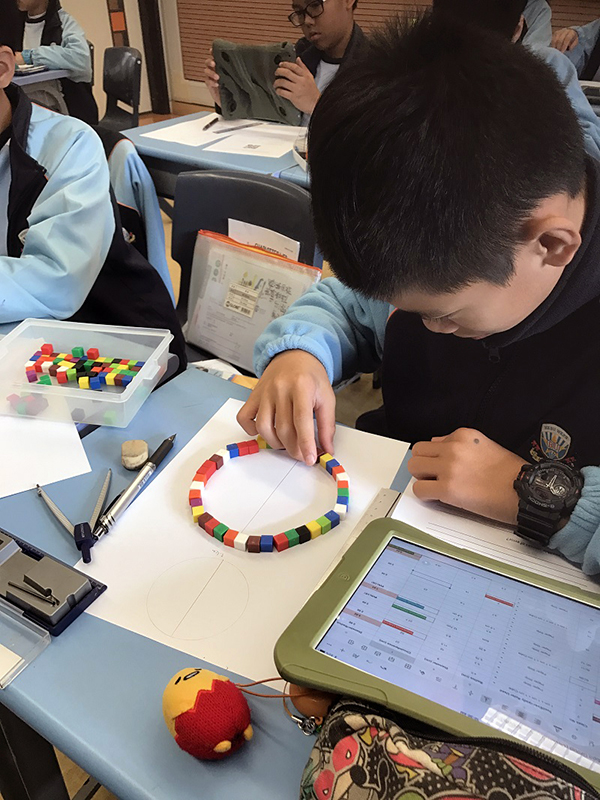
Discovered Pi using cubes.
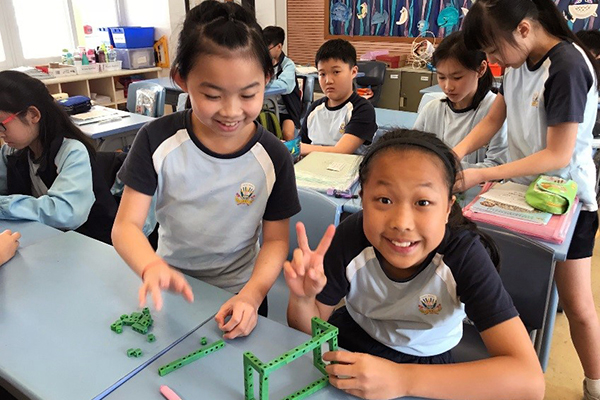
Solved volume-related problems using hands-on materials.
Activities Time
To fully engage our students into learning Mathematics, teachers design different lesson activities for our students to explore, explain and enjoy. With teacher’s guidance, students collaborate with one and other to solve problems.
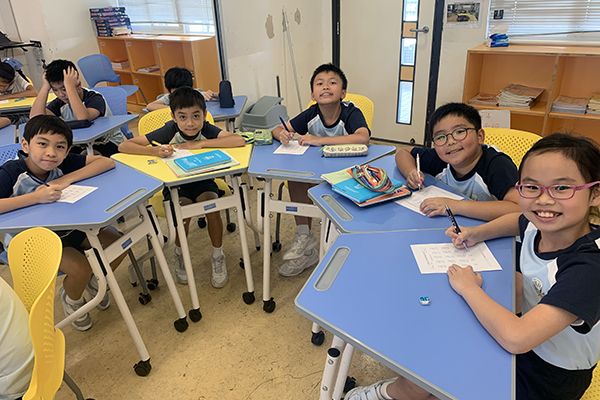
Speed calculation to train up our student’s speed and accuracy.
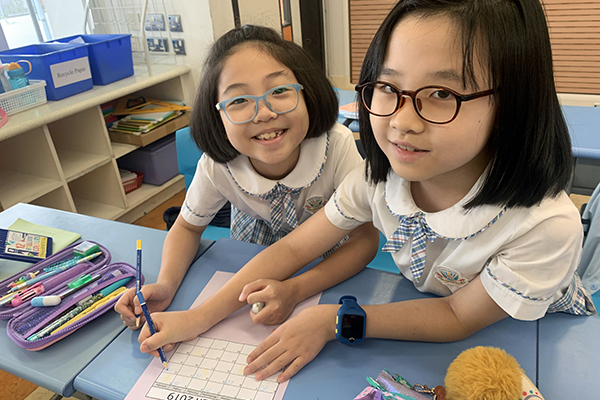
Investigated the topic of “multiples” through daily life experience - planning activities.
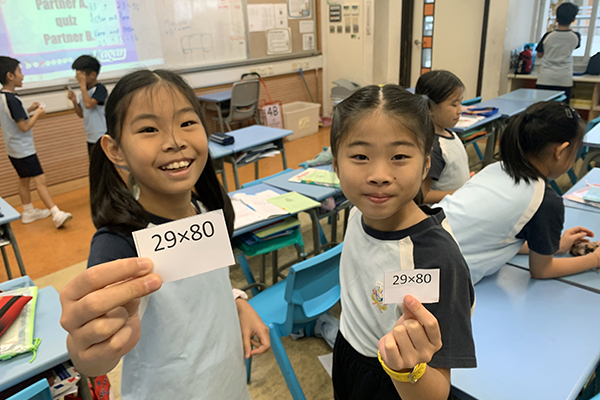
Quiz-Quiz-Trade for learning multiplication.
IT in Math
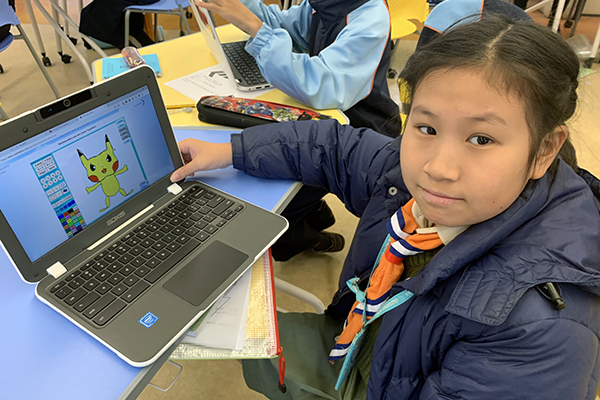
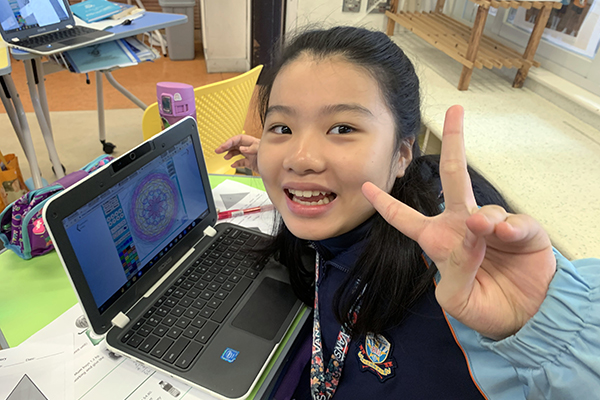
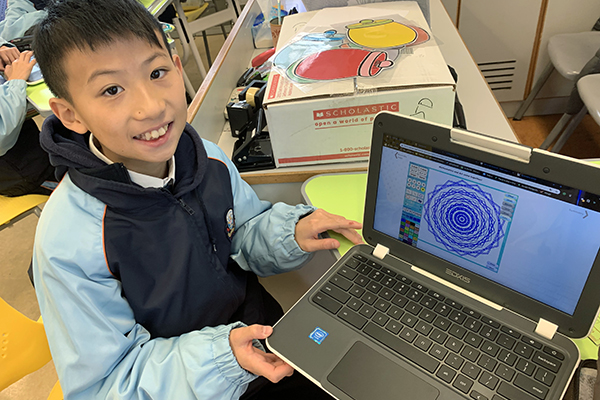
Learned about symmetry and rotational symmetry with Chromebooks.
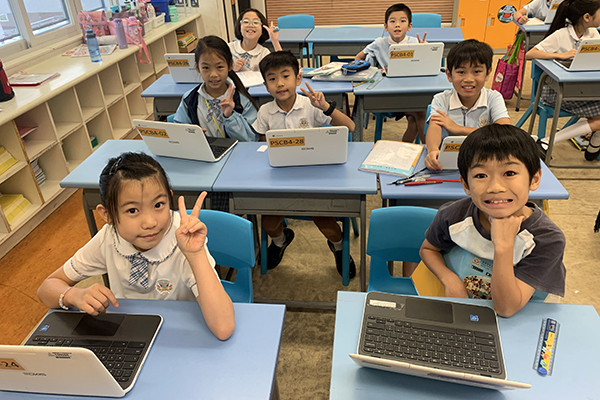
Solved Math problems through the use of Chromebooks.
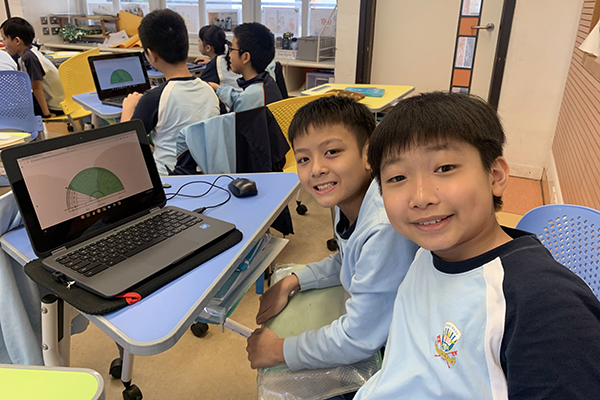
Used online tools to solve problems.
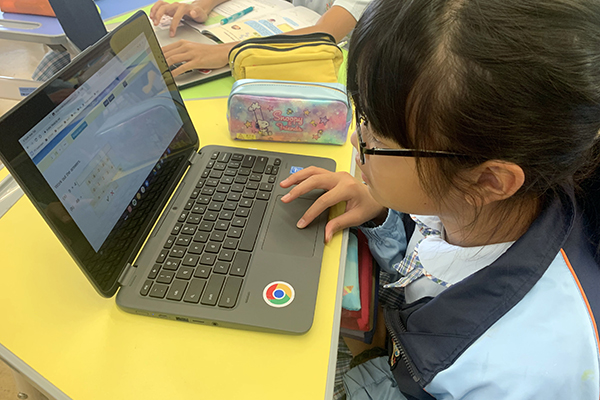
Completed online assignments.
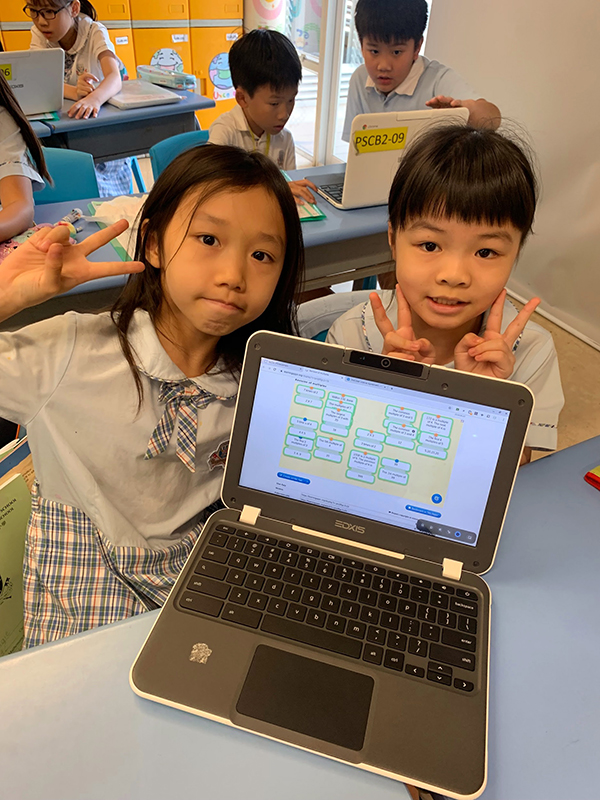
Solved Math problems collaboratively.
Students’ Achievement
Many of our students are Math prodigies and their achievements outside school are very impressive. Throughout the years they have won numerous of awards from different competitions, such as Guangdong-Hong Kong-Macao Greater Bay Area Mathematical Olympiad, Hong Kong 4D Frame Maths & Science Creativity Competition, Hua Xia Cup Nationwide Mathematical Olympiad Invitation Tournament, etc.
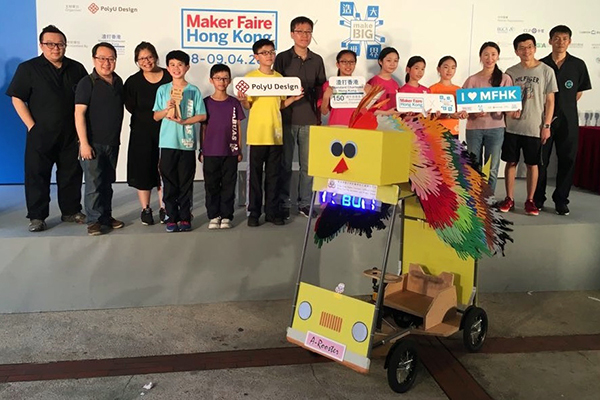
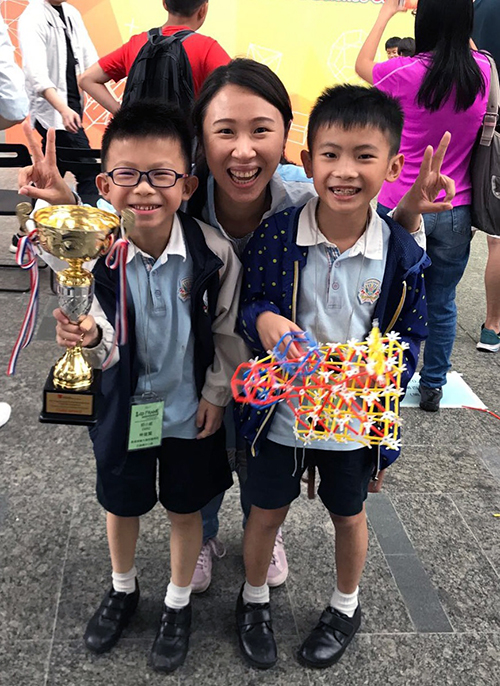
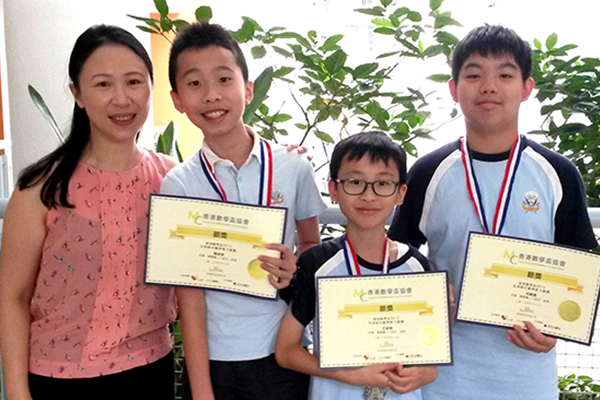
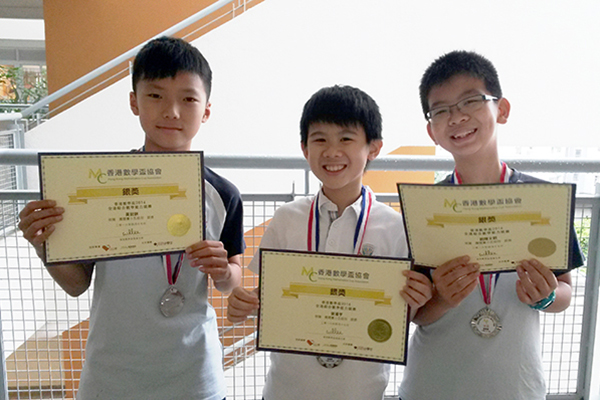
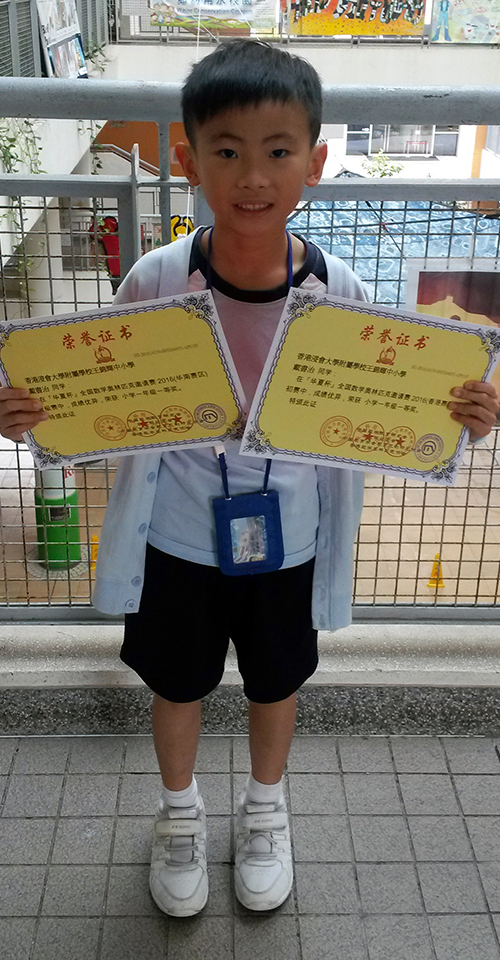
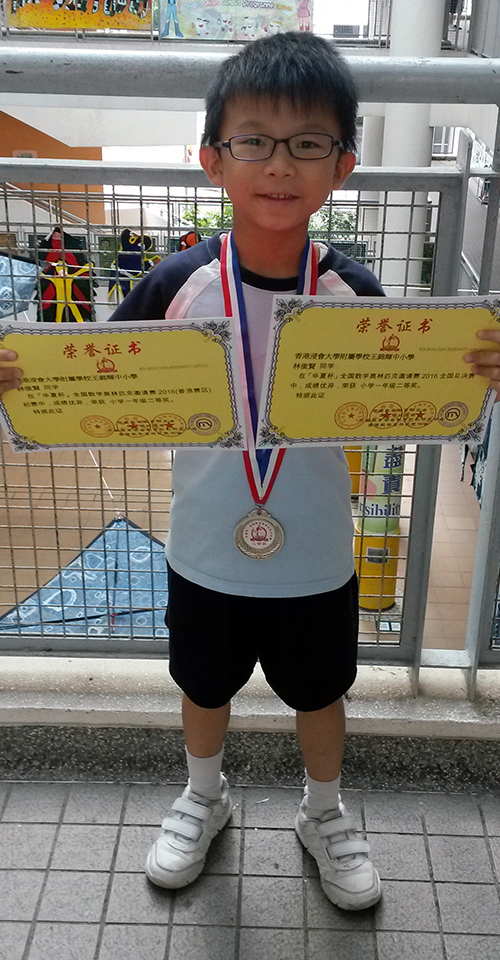
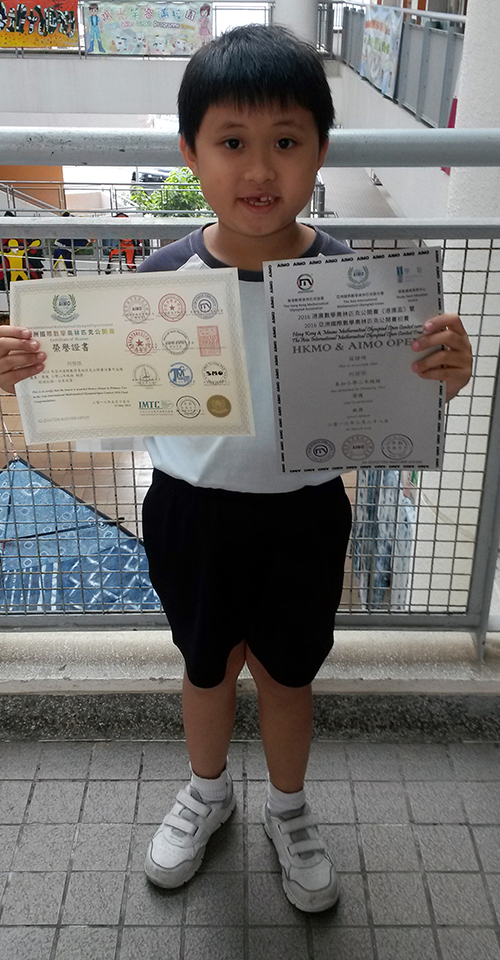
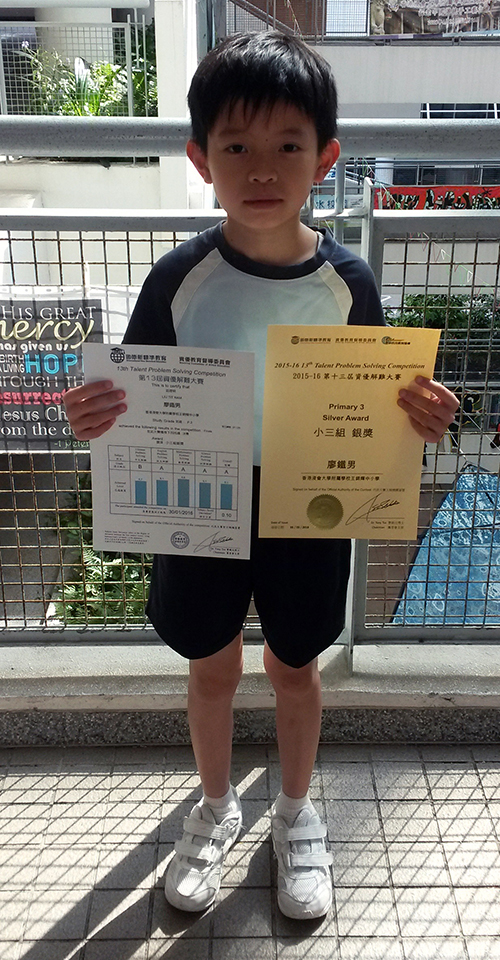
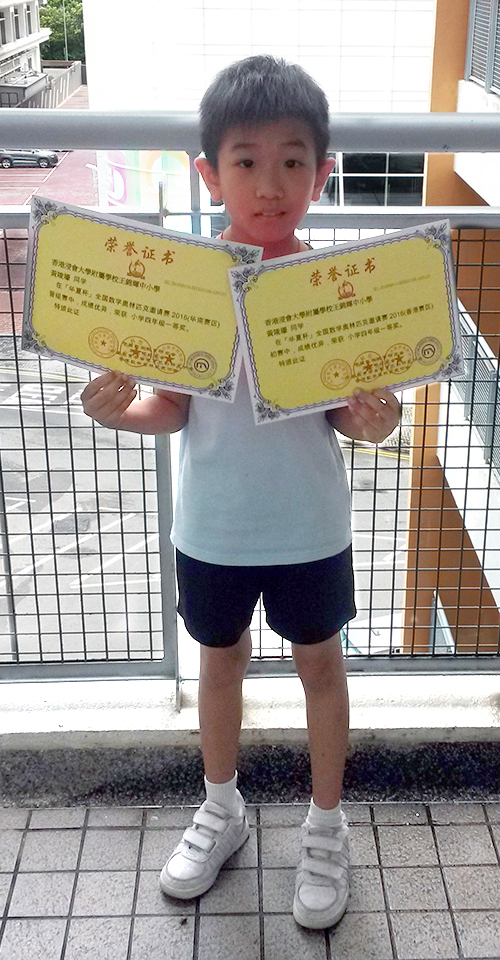
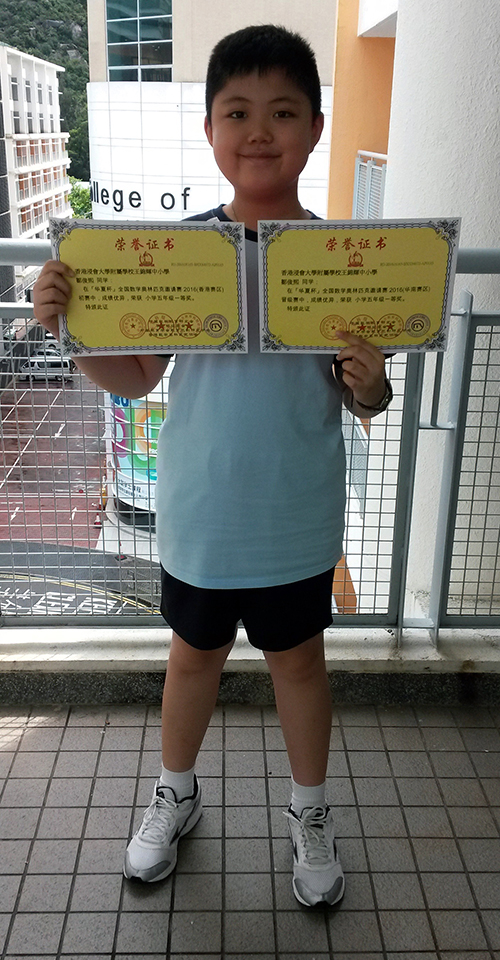
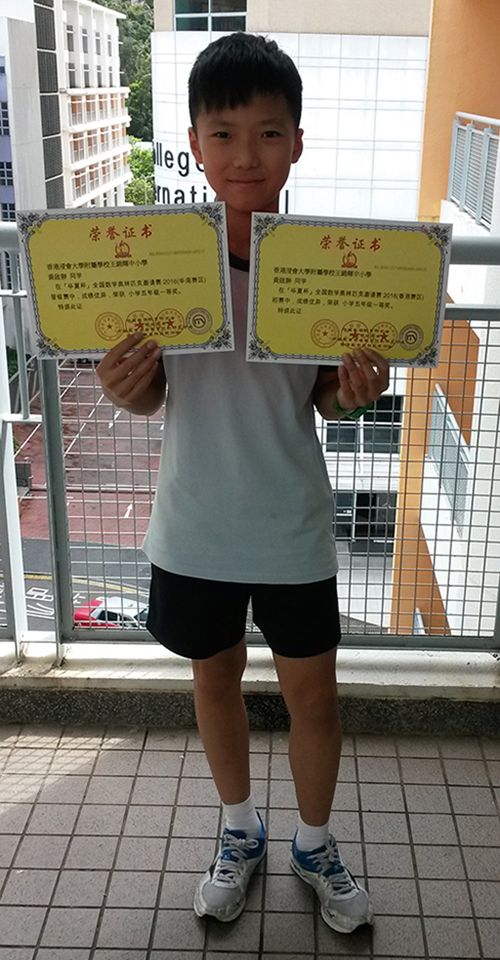
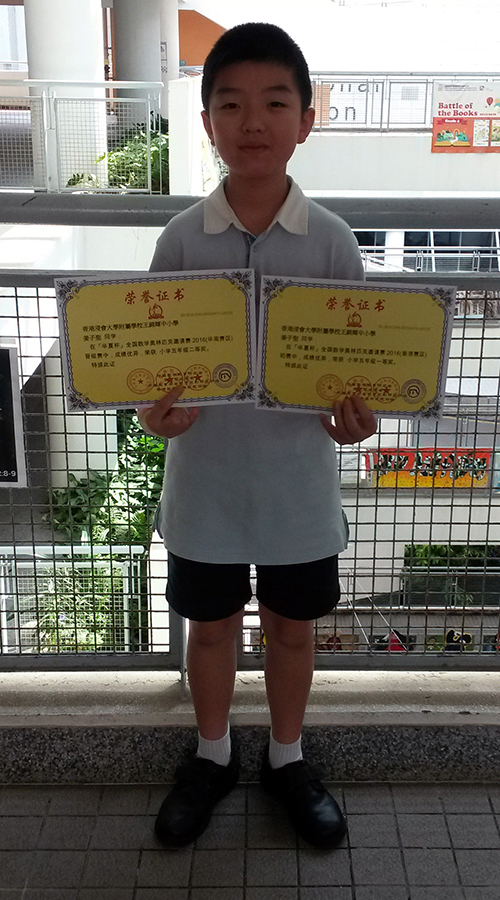
Every year, our students participate in ICAS International Examination. Look at our medalists!
